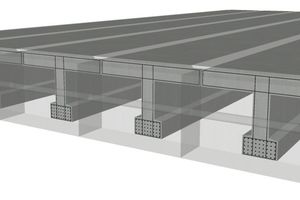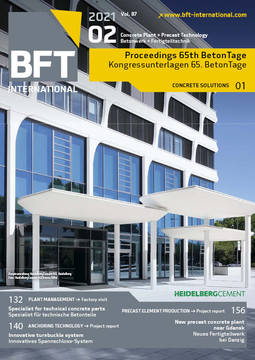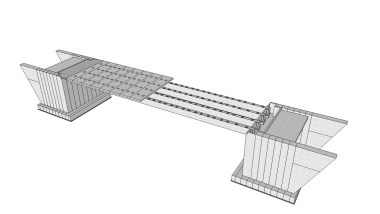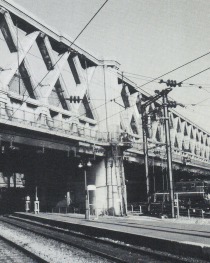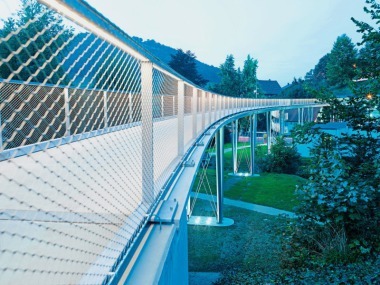Investigations on modular bridge constructions made of CFRP reinforced concrete
In recent decades, the requirements for existing bridge structures increased significantly due to the strong growth of traffic volume and in particular due to the higher total vehicle weights. As a result, a large number of the existing bridges in Germany will have to be rehabilitated or reconstructed over the next few years. Both strengthening of existing bridges as well as necessary reconstructions are extensive, expensive and strongly influence traffic. Hence, the development of new methods for sustainable bridge constructions becomes a macroeconomic issue.
Modular bridge constructions made of prestressed precast elements
with reinforcement made of carbon fibre reinforced polymer (CFRP) are a promising approach to solve this problem. They enable
efficient and high-quality solutions for slender structures with
reduced construction periods and improved durability.
Therefore, investigations were conducted at the Institute of Structural
Concrete of RWTH Aachen University to develop a concept for a novel modular bridge system made of precast CFRP reinforced concrete
elements (Fig). As part of the process, the behaviour of the CFRP reinforcement in high-performance concrete (HPC) needs to be determined to achieve an economical and reliable design. To ensure reliable transfer of the prestressing force, investigations on the bond behaviour
of the pretensioned CFRP tendons were conducted. In addition, bending
and shear tests were performed to investigate the structural performance
of the precast elements with mixed untensioned and prestressed
CFRP reinforcement. Since the connection of the individual
modular precast elements by means of friction-locked joints is
another important issue, the structural behaviour of different joint designs was also investigated.

